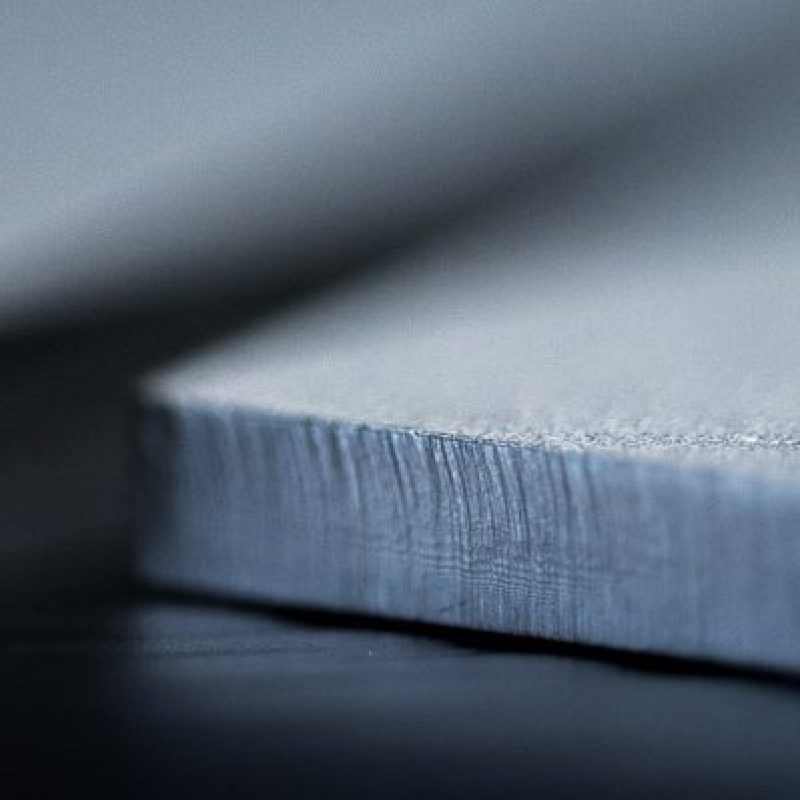304 / 304L
1.4301 / 1.4307
This is the most versatile, and one of the most widely applied of the 300 Series Stainless steels. It has excellent forming and welding characteristics. The carefully controlled analysis of Type 304 enables it to be deep drawn more severely than Types 301 and 302 without intermediate heat softening…a characteristic that has made this grade dominant in the manufacture of drawn stainless parts such as sinks, and saucepans. It is readily brake or roll formed into a variety of other parts for application in the industrial, architectural, and transportation fields.
Type 304 also has outstanding welding characteristics. Post-weld annealing is not required to restore the excellent performance of this grade in a wide range of mildly corrosive conditions.
Corrosion resistance
Excellent. Exceeding that of Type 302 in a wide variety of corrosive media including hot petroleum products, steam combustion gasses.
Heat resistance
Good oxidation resistance in intermittent service to 1600⁰F and in continuous service to 1700⁰F. Continuous use of 304 in 800 – 1575⁰F range not recommended but often performs well in temperatures fluctuating above and below this range. Type 304L is more resistant to carbide precipitation and can be used in the above temperature range.
Heat treatment
Annealing – heat to 1850 – 2050⁰F and cool rapidly. These grades cannot be hardened by thermal treatment.
Welding
Excellent. All standard methods. Use type 308 rods or electrodes. Heavy welded sections in Type 304 may require post-weld annealing for maximum corrosion resistance. This is not required if Type 304L is used.

Typical applications
The list of applications for this general purpose grade is very extensive and includes:
- beer barrels
- food processing equipment
- wine storage tanks
- chemical containers
- winding wire
- bulk milk containers
- fire extinguisher parts
- tube skelp
- heat exchangers
AISI analysis (%)
| Grade | C | Mn | P | S | Si | Cr | Ni |
|---|---|---|---|---|---|---|---|
| 304 | .08 max | 2.0 max | .045 max | .030 max | 1.0 max | 18.0 to 20.0 | 8.0 to 10.5 |
| 304L | .03 max | 2.0 max | .045 max | .030 max | 1.0 max | 18.0 to 20.0 | 8.0 to 12.0 |
Mechanical properties (annealed)
| Yield Strength .2% Offset (psi) | Ultimate Strength (psi) | Elongation in 2” (%) | Hardness (Rb) | Hardness (BHN) | Impact Charpy (ft. – lbs) | Elastic modulus (psi) |
|---|---|---|---|---|---|---|
| 35,000 | 84,000 | 55 | 80 | 149 | 135 | 28.0×10⁶ |
Other properties
| Creep Strength 1% Flow in 10,000 h at 1,000⁰F psi | Magnetic Permeability at 200 H-Annealed | Electrical Resistivity at 68⁰F (μΩ-cm) | Thermal Expansion 32⁰ – 212⁰F (In/In/⁰F×10‾⁶) | Thermal Conductivity (BTU./ft.₂/hr./⁰F/ft) |
|---|---|---|---|---|
| 17,300 | 1.02 | 72 | 9.6 | 9.4 (at 212⁰F) 12.4 (at 932⁰F) |
